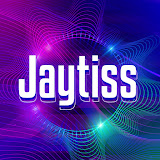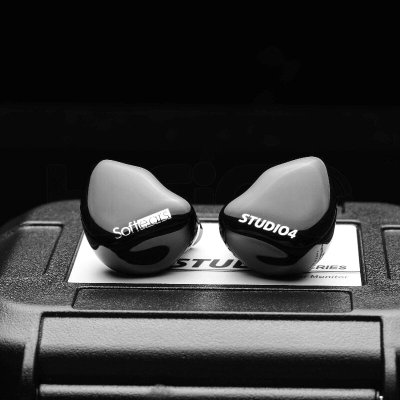
Softears Studio 4 VS Moondrop x Crinacle Dusk
IEM Comparison: Expert & Community Scores Side-by-Side
Softears Studio 4 and Moondrop x Crinacle Dusk use 4BA and 2DD+2BA+2PLA driver setups respectively. Softears Studio 4 costs $450 while Moondrop x Crinacle Dusk costs $400. Softears Studio 4 is $50 more expensive. Softears Studio 4 holds a slight 0.2-point edge in reviewer scores (8 vs 7.8). Moondrop x Crinacle Dusk carries a user score of 7.7. Softears Studio 4 has significantly better mids with a 2-point edge and Moondrop x Crinacle Dusk has significantly better treble with a 1-point edge.
Insights
| Metric | Softears Studio 4 | Moondrop x Crinacle Dusk |
|---|---|---|
| Mids | 8 | 6 |
| Treble | 7 | 8 |
| Soundstage | 8 | 8 |
| Dynamics | 5 | 5 |
| Tonality | 7 | 6.8 |
| Technicalities | 7 | 8 |
Jaytiss Reviews Comparison
Softears Studio 4 reviewed by
Youtube Video Summary
Starry Edition brings a fresh faceplate to the Softears Studio 4 without changing the tuning. The translucent, slightly large shell seals firmly and delivers strong isolation; the only nit is a modest nozzle lip that still holds tips fine. Packaging leans “studio”: compact Pelican-style case, extension cable, tips, 6.3 mm adapter, and a soft black cable that feels nice but lacks a chin slider and terminates in 3.5 mm.
Sonically, this 4BA set is about clarity, air, and top-end extension—described as among the best heard under $800. Vocals come through vivid, mids are clean, and bass has a mild shelf: tasteful impact without bloat, though it’s not a slam machine. Expect excellent imaging, space, and detail; a touch of EQ can add weight if desired. It can be a bit source-picky: low output impedance sources suit it best, while a 10 Ω adapter pushes more treble and trims bass in a less pleasing way.
Against peers, Studio 4 is praised over Softears Twilight for air/extension (while acknowledging Twilight’s smooth DD charm) and over Volume for overall technicalities despite the small price gap. Versus RSV, Studio 4 avoids the RSV’s slight bass “muffle” and undercuts it on price; compared with Monarch MKII, it delivers a similar tonal aim without the occasional grain. Sets like Kiwi Ears 4, Truthear Hexa, and Binary Acoustics D Quattro trade blows on bass quantity versus air, but Studio 4’s upper-air detail and coherence make it a standout. At an often-seen street of ~$368, it’s framed as a benchmark sub-$500 pick and earns a full recommendation for listeners chasing articulate treble, lifelike vocals, and refined balance.
Jaytiss Youtube Channel
Buy Softears Studio 4 on HiFiGO
Ad
Price: $449
Buy Softears Studio 4 on HiFiGO
Moondrop x Crinacle Dusk reviewed by
Youtube Video Summary
Build impresses out of the box: a premium case, a handsome semi-transparent shell that’s a touch larger than AFUL’s Magic One, a smaller nozzle, and excellent comfort—easy A+. The included DSP cable feels great, while the analog cable comes off a bit cheap for the price. Packaging and accessories sit at an average level overall.
In analog form, this is a Jekyll-and-Hyde situation. Channel matching is spot-on, but the presentation reads flat/neutral to a fault—solid, yet not especially competitive, fitting more a $150–$170 tier for raw value. Versus the original Blessing 2 Dusk, the new Dusk extends better up top with more air, but from bass through upper mids (to ~8 kHz) the older set still vocals better and feels more engaging; upgrading for the analog tuning alone isn’t advised. Alternatives like the PULA PA02 or CKLVX 1DD+4BA hit a similar, clean-neutral aim, while Gizaudio Chopin shows a smarter 5–6 kHz dip, livelier mids, and punchier bass at roughly half the price. Among Crin collabs, it’s clearly more refined than the Dioko, but not a slam-dunk over his other budget-minded sets.
The story flips with the DSP. Engaged, the Dusk becomes an easy recommendation: noticeably more balanced, resolving, and simply fun, earning a “perfect score for value” within the DSP lane. Caveats: Android support is the sweet spot; iPhone compatibility can be finicky, pushing some users to desktop—where manual EQ already exists. Still, the app is simple, the extra tunings are useful, and plug-and-play convenience (no dongle DAC dance) is a win. Bottom line: as an analog IEM, only “good” and overpriced; as a DSP IEM, genuinely excellent—highly worth it if the use case fits.
Jaytiss Youtube Channel
Softears Studio 4 Details
Driver Configuration: 4BA
Tuning Type: Neutral
Brand: Softears Top Softears IEMs
Price (Msrp): $450
Support our free service! Buying through our affiliate links costs you nothing extra:
Moondrop x Crinacle Dusk Details
Driver Configuration: 2DD+2BA+2PLA
Tuning Type: n/a
Brand: Moondrop Top Moondrop IEMs
Price (Msrp): $400
Support our free service! Buying through our affiliate links costs you nothing extra:
Softears Studio 4 Scorings
Average Technical & Tuning Grades
Average Tunign Grade
A-- It balances warmth and clarity well, showing only minor quirks along the way. Timbre feels believable with most instruments.
Average Technical Grade
A-- The presentation feels orderly, balancing workable detail retrieval with acceptable imaging cues. It keeps momentum without smearing transients.
Moondrop x Crinacle Dusk Scorings
Average Technical & Tuning Grades
Average Tunign Grade
B+- It sounds pleasant overall, with some uneven spots that hint at room for refinement. Vocals remain pleasant despite the imperfections.
Average Technical Grade
A+- You get an articulate, polished performance with immersive stage depth and great control. There's a sense of polish across the whole spectrum.
Softears Studio 4 User Reviews
"This is an example review"
Pros
- Example pro 1
- Example pro 2
Cons
- Example con 1
- Example con 2
Share your experience and build your personal ranking list.
You need to be signed in to write your own reviewMoondrop x Crinacle Dusk User Reviews
Share your experience and build your personal ranking list.
You need to be signed in to write your own reviewMust use DSP default, much much better than analog
Pros
Very impressive across the board.Cons
Feels kindda "I don't want to hear them for a while" after long sessions. Not sure whyFind your next IEM:
IEM Finder Quiz
newIEM Comparison Tool
newVS


